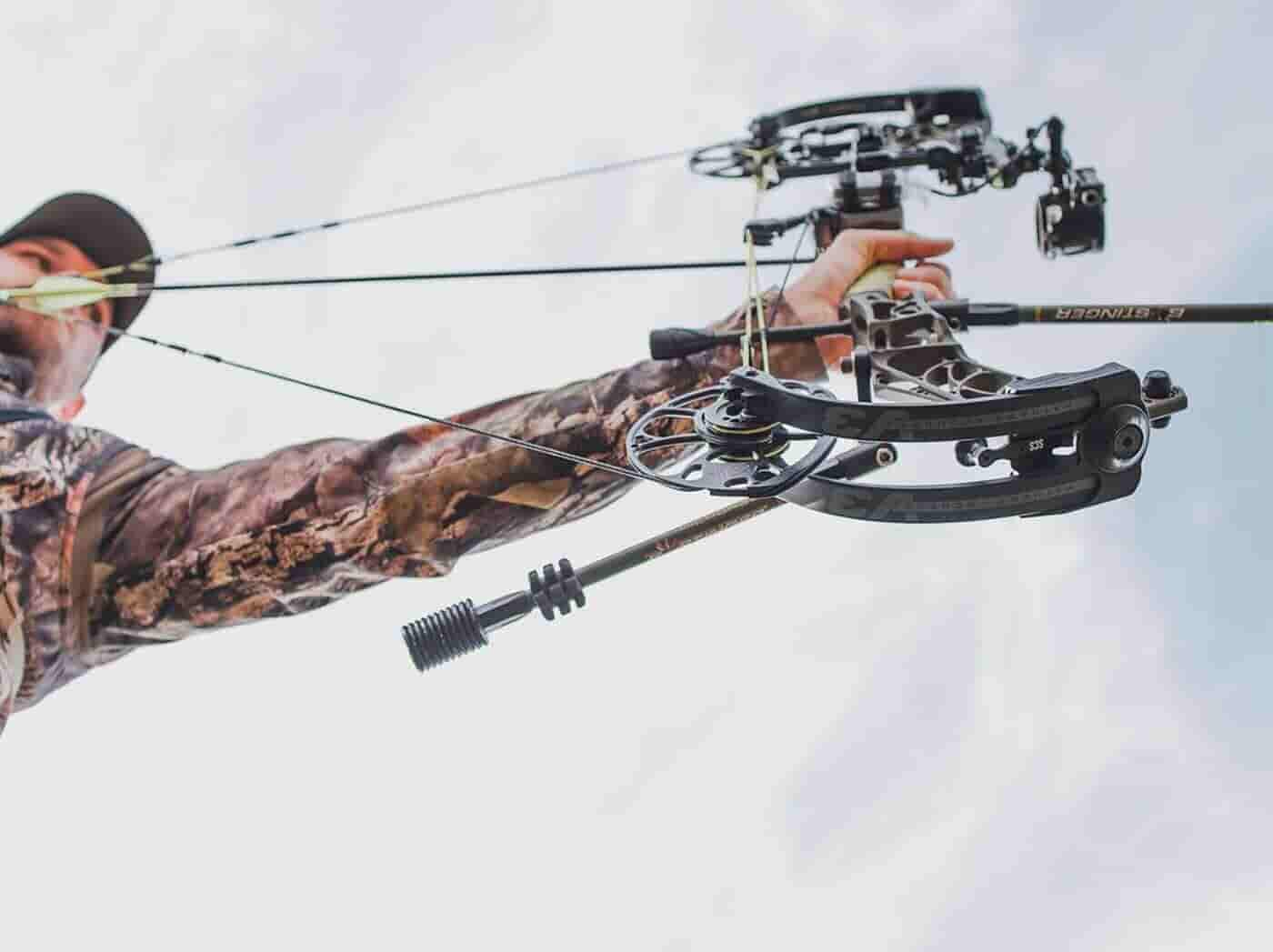Enhance Your Shooting Efficiency with Top-Rated Bow Stabilizers
Enhance Your Shooting Efficiency with Top-Rated Bow Stabilizers
Blog Article
Maximize Your Archery Accuracy With These Bow Stabilizer Methods
One vital aspect that can substantially affect your performance is the correct application of bow stabilizers. Whether you are an experienced archer looking to improve your abilities or a newbie excited to enhance your precision, grasping these bow stabilizer techniques can be the secret to hitting your mark with exceptional consistency.
Advantages of Utilizing Bow Stabilizers
Using bow stabilizers can significantly improve an archer's accuracy and total performance by reducing bow torque and vibration. In addition, bow stabilizers wet vibration, which not only enhances the comfort of shooting but additionally stops the bow from jumping upon release, therefore assisting in maintaining correct aim.
Moreover, bow stabilizers can aid in holding the bow stable, particularly throughout windy conditions or when shooting from longer distances. The added weight at the front of the bow provides security and equilibrium, allowing the archer to focus on intending without the disturbance of bow movement. In general, the benefits of utilizing bow stabilizers expand past simply precision, enhancing the archer's experience and performance in various shooting situations.
Picking the Right Bow Stabilizer
Choosing the proper bow stabilizer is crucial for optimizing your archery equipment and improving shooting performance. When selecting a bow stabilizer, there are a number of aspects to think about to guarantee you locate the appropriate suitable for your demands. Consider the weight of the stabilizer. Larger stabilizers can help in reducing bow torque and take in more vibration, leading to a steadier aim. However, lighter stabilizers offer more ability to move, which can be beneficial in particular shooting circumstances.

Last but not least, consider the design of the stabilizer. Some stabilizers come with adjustable weights or dampeners that permit you to tailor the balance and feeling of your bow. Ultimately, selecting the appropriate bow stabilizer involves locating an equilibrium between weight, product, size, and design to improve your capturing accuracy and general efficiency.
Correct Installment Techniques
To make sure optimum efficiency and safety in archery, mastering appropriate installation methods for your bow stabilizer is necessary. The very first step in installing a bow stabilizer is to identify the appropriate placement on your bow. A lot of stabilizers are connected to the Recommended Reading front of the riser, listed below the grip, to help counterbalance the weight of accessories such as quivers and sights. Guarantee that the stabilizer is not interfering with other components or hindering your shooting form.
Following, safely attach the stabilizer to the bow making use of the ideal installing hardware. Some stabilizers come with flexible weights that can be added or gotten rid of to adjust the balance of your bow.

Readjusting Stabilizer Weight and Length
After ensuring the appropriate setup of your bow stabilizer, the following action involves adjusting the weight and length to enhance its efficiency in boosting archery precision. The weight of the stabilizer plays a crucial role in lessening bow motion throughout the shot cycle. Adding weight to the stabilizer can help enhance and moisten resonances stability, causing even more precise and find out regular shots. On the various other hand, reducing the weight can increase maneuverability, which is advantageous for circumstances requiring quick target acquisition.
A longer stabilizer can give higher stability by raising the distance between the bow and the weight at the end of the stabilizer. Alternatively, a shorter stabilizer offers extra maneuverability and may be liked by archers who value dexterity and quick activities during capturing.
Advanced Stabilizer Tuning Tips
Accomplishing optimum bow stability and accuracy in archery demands a nuanced approach to innovative stabilizer tuning. Advanced stabilizer adjusting involves fine-tuning numerous components to improve the bow's balance, minimize vibration, and enhance total accuracy. One vital technique is to explore various stabilizer setups, consisting of side-bar and back-bar arrangements, to find the excellent balance in between security and maneuverability for your capturing design. bow stabilizer. Additionally, readjusting the angle and positioning of the stabilizer can have a considerable effect on just how the bow responds upon release.
An additional crucial aspect of sophisticated stabilizer adjusting is maximizing the damping residential or commercial properties of the stabilizer system. This can be attained by including extra moistening devices such as rubber dampeners or harmonic stabilizers to better lower vibration and noise. Checking out different materials for the stabilizer building, such as carbon fiber or aluminum, can likewise influence the bow's performance by altering its weight distribution and stiffness. By meticulously make improvements these sophisticated stabilizer elements, archers can maximize their precision and uniformity on the array or in competitors.
Final Thought
In verdict, maximizing archery precision can be achieved with the proper choice, installment, and modification of bow stabilizers. Overall, integrating bow stabilizers right into archery practice can lead to better performance and boosted accuracy.
Utilizing bow stabilizers can significantly improve an archer's precision and overall performance by decreasing bow torque and vibration. Longer stabilizers supply better stability and balance, specifically for long-distance shooting, while shorter stabilizers use even more flexibility and are simpler to maneuver in limited spaces (bow stabilizer). Carbon fiber stabilizers are light-weight and resilient, while aluminum stabilizers are robust and supply excellent resonance wetting
A longer stabilizer can supply greater security by boosting the distance in between the bow and the weight at the home end of the stabilizer.One more essential aspect of sophisticated stabilizer tuning is optimizing the damping properties of the stabilizer system.
Report this page